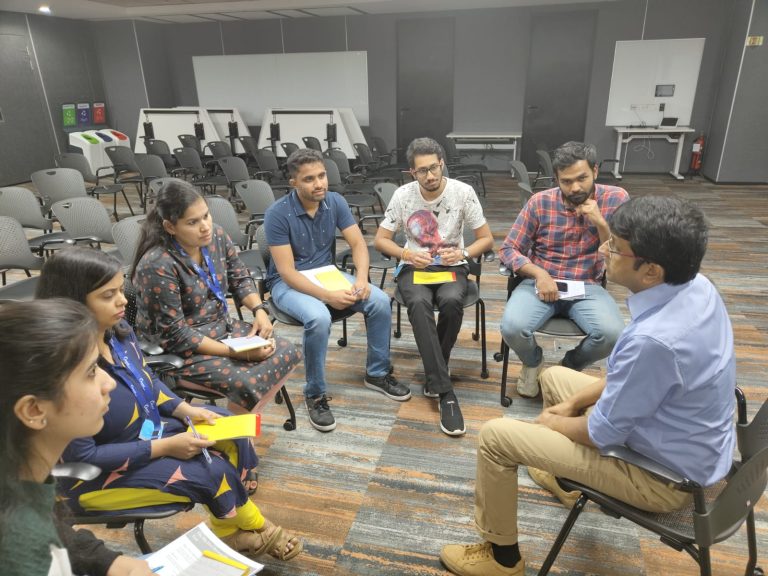Managing Oneself
Success in the modern world depends a lot on how well one introspects and understands themselves. Technical skills and know-how form a relatively small part of overall success in our careers. Soft skills, the ability to empathize, to assess one’s place in an organization, to keep oneself engaged throughout their working life, etc. are some of the points Mr. Peter Drucker covers in this article. In the end, it doesn’t matter where we started out in our careers, as long as we have the drive and ambition to succeed and most importantly have assessed ourselves correctly.
Peter Drucker through this article gives us a set of questions for introspection in the hopes that we will be able to assess ourselves correctly by means of these questions.
“What are my strengths?”
Most people know only what they are not good at rather than their actual strengths. One important tool for understanding your strengths and weaknesses is feedback analysis. Write down what you expect will happen as a result of your decisions and then compare it with the actual results. Focus on your strengths, improve your strengths, do not be ignorant to gaining extra-domain knowledge, improve problem areas and develop good habits.
“How do I perform?”
It is important to know how one works and conducts business. Are you a good listener or a good reader? Are you a decision-maker or an advisor? These questions are important to understand where and how one fits in an organization. There is no point in doing something one is incompetent at. It is often found that a number 2 when promoted to number 1 is unable to perform at the same level. He/she would have been better off in the number 2 role as this is the role that suits them the most.
“Am I a reader or a listener?”
In this article, Peter Drucker classifies people as readers and listeners based on their ability to assimilate new information in the way that it is presented to them. Readers, he says, need information in advance and need to go through it in detail until they come up with solid, well-constructed opinions. Whereas, listeners are more spontaneous in nature. They can come up with explanations and opinions on the fly. Neither method of learning is wrong, it is merely how we are all programmed to function and assimilate information as humans.
“How do I learn?”
Everyone learns and understands new information presented to them in different ways. Generalizing methods of learning for all human beings is a fallacy in the assumption that many educators make. Beethoven needed sketchbooks, Alfred Sloan wrote letters after major meetings to help him remember details, someone else needed to hear himself speak to an audience, and the list goes on. One needs to act on the knowledge one has received. To do this you need to understand if you are a loner or if you work best with other people. Neither way is wrong, it typically depends upon the type of work and the individual’s comfort or working style. Some people perform well under stress while others prefer well constructed planned environments with known variables. Some people are advisers, they function only in the capacity of analyzing information and presenting their opinions. Others are decision makers, they make split second decisions with limited variables and immense unknowns, with no qualms. All of these aspects of personality are important to understand how one learns and functions.
“What are my values?”
Here, the author asks us to do the mirror test wherein we ask ourselves “What kind of person do I want to see in the mirror in the morning?” We need to find an organization that matches our value systems. If we fail to do this, we will end up being highly dissatisfied in our organization which will lead to counterproductive workplace behavior.
“Where do I belong?”
This question forces us to ask ourselves where we actually belong. There is no point in taking up a position in an organization that does not suit us. It allows us to define how we will work in a given position and helps us identify which jobs/companies are most suitable for us given our skills, values, and abilities. A successful career is never planned but is developed by developing a deep understanding of one’s skills, knowledge, abilities, values, etc. Thus knowing where you belong can transform you from a mediocre hard worker to an outstanding performer.
“What should I contribute?”
We need to ask ourselves, given our skills, values, and abilities, how can we make the greatest contribution to the task at hand and what results must be achieved to make a difference. We must always aim to achieve realistic results. There is no point in striving to achieve far-fetched goals. Results should be visible and if possible, measurable.
Relationship Responsibility
Next, Peter Drucker talks about responsibility for relationships where he talks about how managing oneself involves taking responsibility for relationships. The first and foremost fact is that people around us are as human and individualistic as you and me. Therefore it is important to know the strengths, weaknesses, skills, abilities, values, and performance modes of our colleagues. It is important to know their strengths and weaknesses in order to achieve tasks effectively especially when working in a team. Next is the responsibility for communication. In order to know what our colleagues are doing, how they’re doing it, and what their contribution is, we need to ask them. Failure to do so is stupidity. Organizations are built on trust and this trust is impossible unless we take the responsibility to communicate and maintain relationships.
The Second Half of Our Lives
In the next part, he talks about the second half of our lives. Most people reach the peak of their careers by 45 after which it becomes extremely difficult to continue doing what you’ve been doing for the remainder of your working life. In this article, he has suggested three ways in which we can avoid career exhaustion. The first way is to switch careers entirely, wherein you would switch your line of work completely. The second way mentioned by him is to develop a parallel career. In this case, people maintain their normal jobs but develop secondary careers usually in a non-profit organization. Then there are social entrepreneurs who have given up their normal jobs to run non-profit organizations or set up socially useful ventures such as schools etc. In conclusion, knowledge workers must be flexible and must most importantly understand themselves and their surrounding environments thoroughly.




